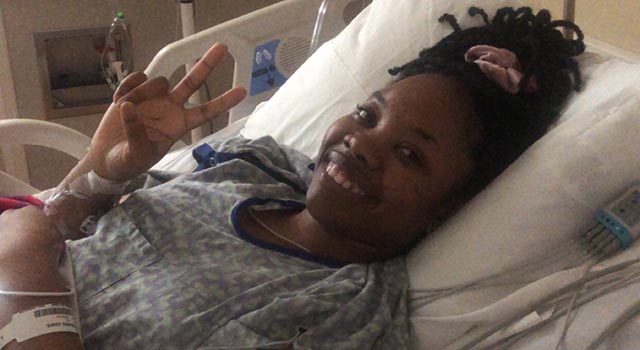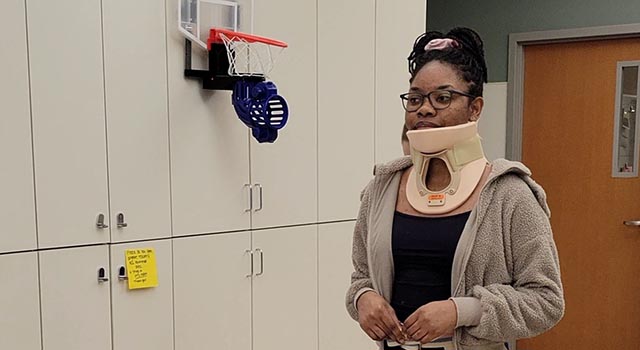Neck pain was the first sign something was amiss.
“I would describe it as when you sleep wrong on a pillow,” says Kelly-Joe Dennis-Davis, a 30-year-old native of Jamaica who now lives in Myrtle Beach.
But unlike the stiff neck from sleeping strangely, this pain didn’t go away and instead got worse. Dennis-Davis quit using a pillow. She slept flat on her back. Nothing worked.
“I just learned to live with the pain,” says Dennis-Davis, whose symptoms began while she was a student attending University of the West Indies.
As the years went on, the pain in Dennis-Davis’s neck evolved into frequent and intense symptoms: headaches, dizziness, tingling and numbness in her extremities.
Some days, the symptoms were so bad she had to miss work – sometimes for several days at a time.
A discovery
With her condition continuing to deteriorate, she sought care from neurologist Dr. Michael McCaffrey, who is part of the advanced neurosciences program at Tidelands Health, our region’s largest health care provider. An MRI in October 2022 showed a mass within her spinal cord between the sixth and seventh vertebrae in her neck.

“I saw measurements, so I automatically knew there was something there,” says Dennis-Davis, who works as a procedural technician at a Grand Strand pain clinic.
The tumor was an ependymoma, which grows from the cells lining the system of chambers that move cerebrospinal fluid through the central nervous system. It’s a type of tumor that can manifest in the brain or along the spine. It is slow-growing and benign and usually diagnosed in childhood.
Validation - and a path forward
The diagnosis by her care team at Tidelands Health came as a relief because it provided an explanation for her symptoms and gave her a path toward relief, Dennis-Davis says.
“I cried a little bit,” she says. “When he said there was a tumor, I could put my finger on something specific as the cause for my symptoms. I’m sure there were people hearing me complain about it probably thinking I was making it up.”
The surgery would not be simple. It involved removing the rear portions of her vertebrae to expose the spinal cord and tumor, then surgically removing the tumor without permanently damaging the spinal cord, which could result in quadriplegia.
She was undaunted.
“I opted for surgery immediately,” Dennis-Davis says. “I’d had these symptoms for years. I looked at it as a way to be pain free.”
Advanced care
Tidelands Health neurosurgeons Dr. Oluwaseun Omofoye and Dr. M. Daniel Eggart led the six-hour procedure to remove the tumor.
“It was a high-risk surgery that required cutting into the spinal cord. However, with the aid of our advanced microscope, ultrasound, neuromonitoring and other specialized instruments, we were able to perform the surgery safely.” Dr. Omofoye says.
The surgical team used ultrasound to locate the tumor and pinpoint where it was closest to the spinal cord surface. While Dennis-Davis was anesthetized, a system of needles in her extremities and scalp monitored the functioning of her nervous system.

Following the procedure, Dennis-Davis spent one week in the hospital, followed by a week in inpatient rehabilitation.
In the end, she says, the entire experience was worthwhile.
“When I woke up, I had no issues with my upper body,” Dennis-Davis says. “I’ve had a few headaches but nothing near what I had before.”
Since the surgery, she has experienced a slight numbness in the nerves that detect touch in her legs and lower body – a result that Dr. Omofoye says was expected and will return to normal in time.
In the meantime, Dennis-Davis is back at work and happily adjusting to being pain-free for the first time in years.
“It feels weird that I’m not having headaches,” she says. “It’s so weird to not live in pain because I’ve lived all my life in pain.”





